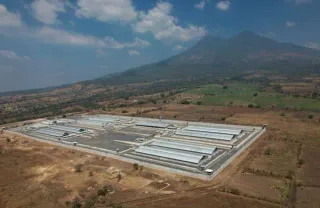
Nov 26
More People Are Addicted to Marijuana, But Fewer of Them Are Seeking Help, Experts Say
Laura Ungar READ TIME: 4 MIN.
Megan Feller smoked pot several times a day and couldn’t eat, sleep or function without it. But at the time, she didn't see the need to reach out for help.
“I didn’t think cannabis was a big deal,” the 24-year-old said. “It was really socially accepted.”
This attitude is common. As more states legalize marijuana, use has become more normalized and products have become more potent. But fewer of those who are addicted seek help for it.
Pot use among young adults reached historic levels in recent years, according to a federally supported survey. Daily use even outpaced daily drinking, with nearly 18 million Americans reporting in 2022 that they use marijuana every day or nearly every day, up from less than 1 million three decades earlier.
Studies show a corresponding increase in cannabis use disorder — when people crave marijuana and spend lots of time using it even though it causes problems at home, school, work or in relationships. It’s a condition that researchers estimate affects about 3 in 10 pot users and can be mild, moderate or severe.
And it's an addiction — despite the common misconception that that's not possible with marijuana, said Dr. Smita Das, an addiction psychiatrist at Stanford University.
Meanwhile, the drug’s widespread acceptance has fueled a stigma about seeking treatment, said Dr. Jennifer Exo of the Hazelden Betty Ford Foundation in Minnesota.
“There’s this pervasive belief that you can’t become addicted, it can’t actually be a problem,” she said. “It has to do with this myth that cannabis is safe, natural and benign.”
While pot isn’t as harmful as harder drugs, frequent or heavy use has been linked to problems with learning, memory and attention as well as chronic nausea, vomiting and lung problems among those who smoke it. Some evidence has also linked it to earlier onset of psychosis in people with genetic risk factors for psychotic disorders like schizophrenia.
And today’s pot is not the same as that of the past.
Many people recall older relatives who “smoked a few doobies and ate some food and fell asleep,” Exo said. “But it’s absolutely different.”
In the 1960s, most pot that people smoked contained less than 5% THC, the ingredient that causes a high. Today, the THC potency in cannabis flower and concentrates sold in dispensaries can reach 40% or more, according to the National Institute on Drug Abuse.
Teens are often vaping potent marijuana concentrates, Exo said, rather than eating brownies made with cannabis flower or taking a hit from a bong.
Pot is also increasingly available. Though it’s still a federal crime to possess it, 24 states allow recreational use by adults and 40 allow medical use as of late June, the National Conference of State Legislatures said. Dispensaries abound and more people are able to keep pot at home.
Research links the legalization of recreational marijuana with rising emergency room visits for “acute cannabis intoxication,” in which patients may experience a rapid heartbeat or feel dizzy, confused or paranoid.
A study last year focused on Michigan found that legalization was associated with an immediate increase in the rate of ER visits for this condition among people of all ages, especially middle-aged adults.
Das said increased access to cannabis, along with a growing number of cannabis products and with higher potency all contribute to rising ER visits. Edibles such as gummies can pose a particular problem because they take a little while to kick in so people may keep taking more because they don’t yet feel the drug’s effects.
“Then, suddenly, they’re suffering from cannabis toxicity,” she said.
Feller first tried pot at 16 and quickly went from smoking the plant to using vape cartridges that were easy to hide in her pocket. Soon, she could barely get by without it.
“I would wake up every morning for years, and until I smoked weed, I would throw up,” she said. Instead of trying to get high, she used it “to make these other symptoms go away.”
Feller was also drinking a lot and her parents sent her to a treatment center when she was around 18. It didn’t help because she wasn’t ready to get well. After her mother died, her substance use worsened.
At 22, Feller entered Hazelden on her own — but only to get sober from alcohol, which she did.
She kept using pot on and off, then finally sought treatment for cannabis use disorder and has been sober from marijuana for almost a year.
“I’m so much happier now,” she said. “I don’t feel, like, shackled to a substance.”
Such treatment is often overlooked, said Brian Graves, a researcher at Florida Atlantic University.
He and his colleagues published a study this year showing that the share of people who got treatment for cannabis use disorder from their nationally representative sample dropped from 19% in 2003 to 13% in 2019. An earlier study also found a marked decline and pointed to reasons that include “expanding cannabis legalization and more tolerant attitudes.”
Experts said people need to be educated that pot, like alcohol, can be misused and can cause real harm.
“Another important piece is helping people understand the risk before they start,” Exo said, “and then to feel safe enough to say, ‘Hey, I need help managing this.’”
Many people wait until their marijuana use causes problems in multiple parts of their lives before they seek treatment — if they ever do.
“If you’re changing your life because of weed, there might be an issue,” Feller added. “There are resources to get help and you are not alone.”






